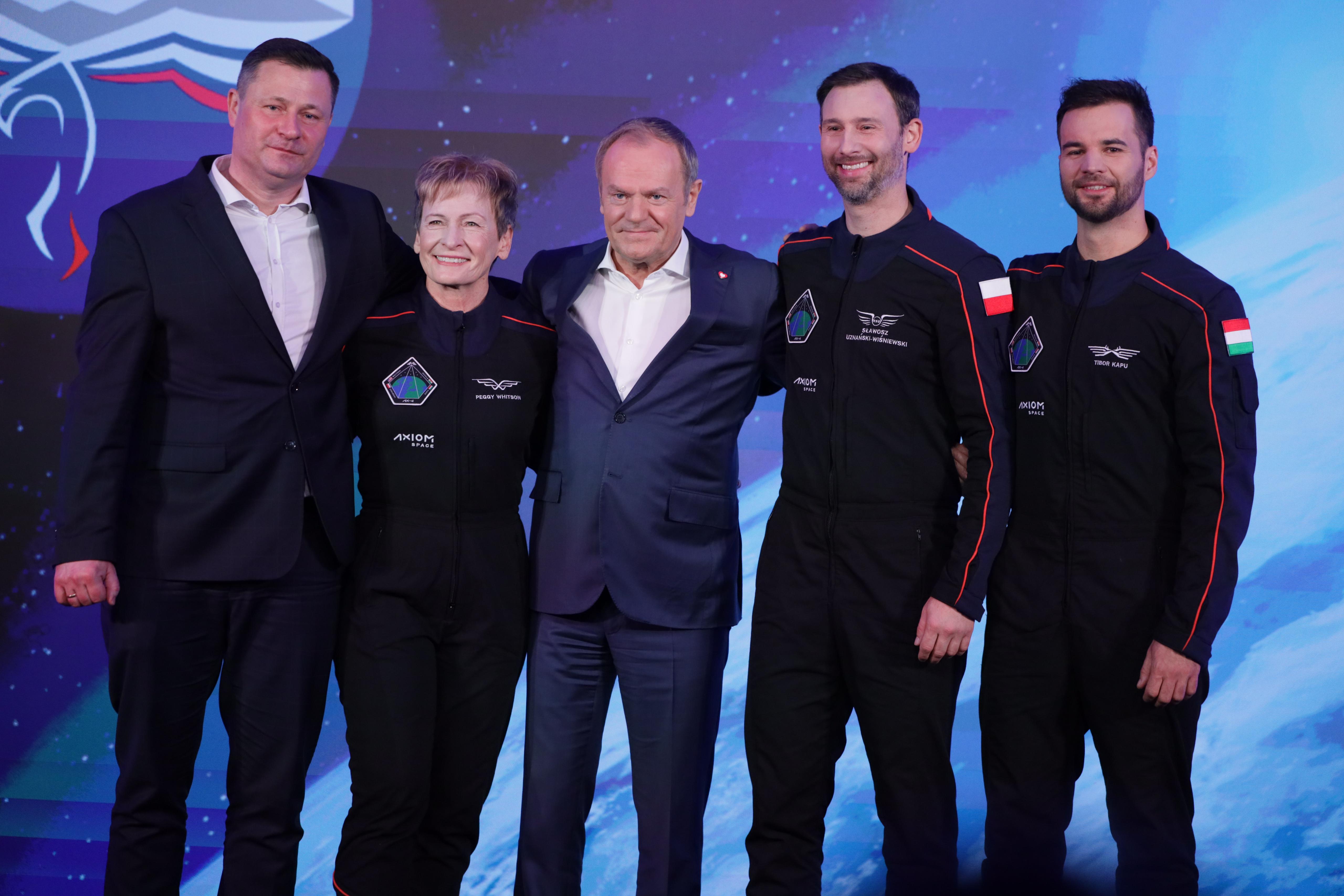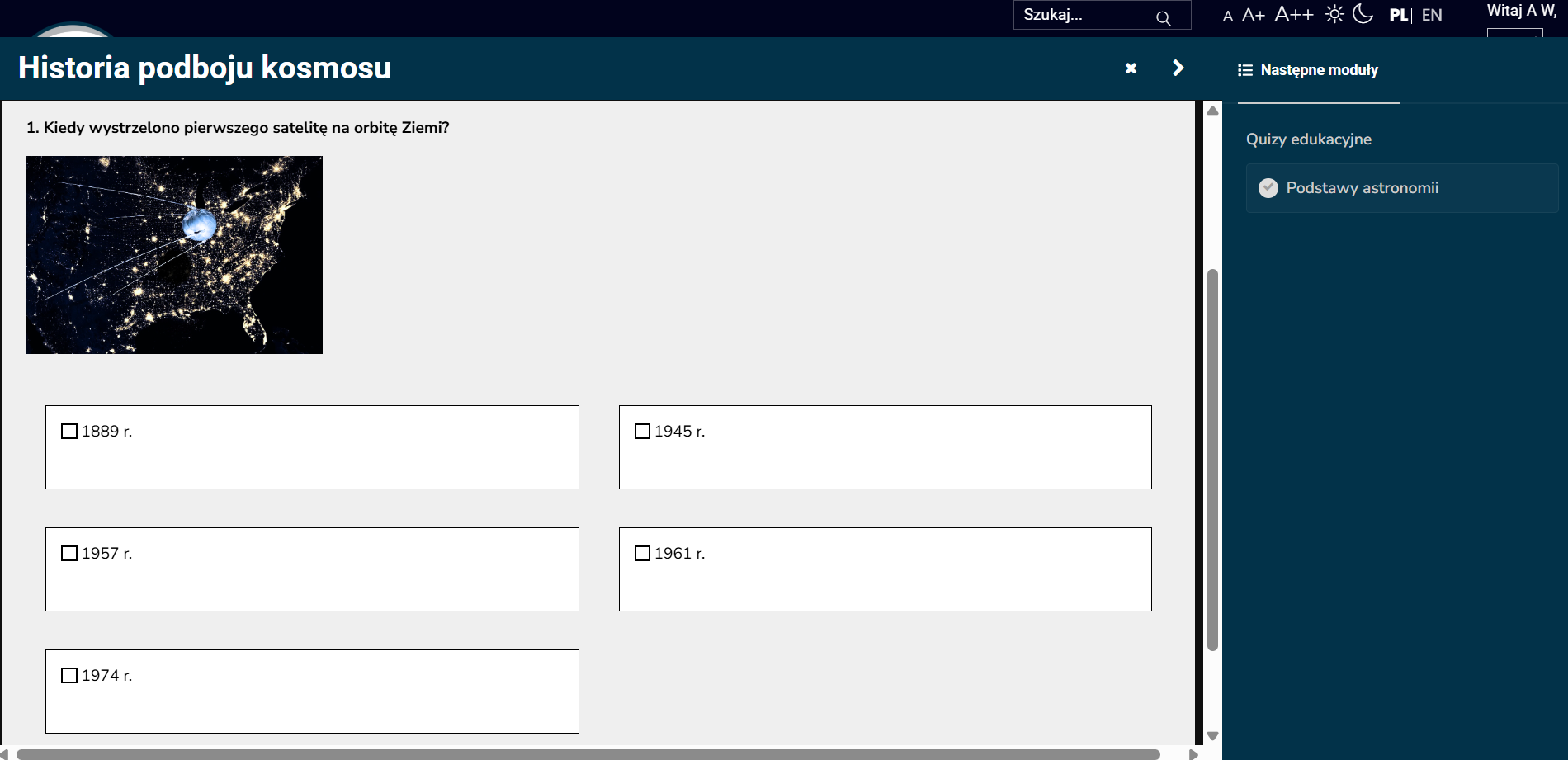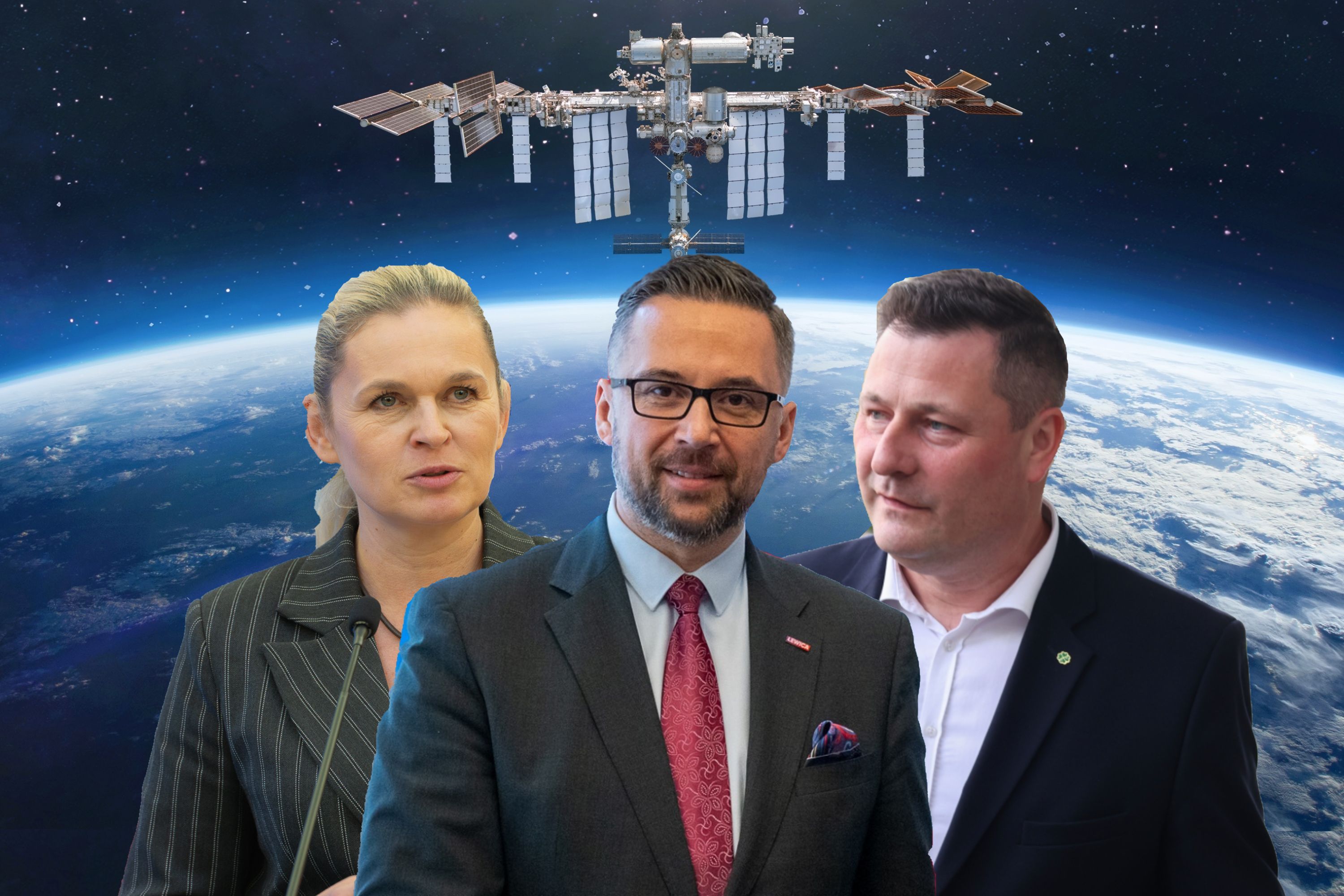A Pole is going on a space mission, and Poland is wasting a historic opportunity

- After being postponed several times, a space mission with a Polish astronaut on board is set to launch on Thursday, June 19. It will be the first such flight in 47 years.
- Sławosz Uznański-Wiśniewski will conduct 13 experiments in orbit designed by Polish universities and companies.
- According to experts, the mission does not use its educational potential. The ministries of development, science or education take almost no action to promote Uznański's flight among potential students of technical fields and children.
- The result? The "Nauka. To Lubię" foundation is organizing a "Space Week" for schools. Several hundred elementary schools have signed up for free materials. And that's just the tip of the iceberg.
- As representatives of the space sector claim, politicians simply neglect it. For example? For nine months, there was no person acting as head of the Polish delegation to the European Space Agency.
Astronaut Sławosz Uznański-Wiśniewski is the second Pole in history to fly into orbit. His mission is part of the European Space Agency (ESA) program and is to last 14 days. Uznański-Wiśniewski, along with three astronauts from other countries, will work on the International Space Station (ISS). The Falcon 9 rocket with the Dragon crew capsule will launch from the John F. Kennedy Space Center in Florida, United States.
After the launch was postponed several times due to various technical issues, the flight is finally scheduled to take place on Thursday, June 19.
The Pole will conduct 13 experiments on the ISS designed by Polish companies and scientific units .
They will cover, among others:
- research into the impact of isolation, technology and limited contact with nature on the mental health of astronauts,
- changes in the human gut microbiome in microgravity conditions,
- performance of algorithms in real orbital conditions,
- the ability of volcanic microalgae to survive and adapt in space conditions.
However, as scientists argue, his mission could have been better used . Especially in the area of promoting the space sector among young people.
- The launch of the mission, in which British astronaut Tim Peake took part, was broadcast to every British school. But before that happened, schools received a huge amount of materials to help teachers conduct "space" lessons - Dr. Tomasz Rożek, a science popularizer, tells WNP.
He adds that after this mission, the number of applications for science studies in Great Britain increased by about 15 percent in 2015-2016. A similar effect was achieved by the first manned missions in China and Canada.
IGNIS Mission? Anyone seen, anyone knowsWe asked the interested ministries about activities popularizing the mission a month ago (the first date of the Uznański-Wiśniewski flight was set for May 29).
The Ministry of Development and Technology sent us a general response about the ministry's activities concerning the space sector and an assurance that "the promotion of the mission has been conducted for many months, including in the social media of MRiT, POLSA and ESA". Officials also encouraged to visit the IGNIS mission website.
Indeed, the MRiT website does have information about the flight. For example:
And that's not all. Two weeks before the launch of the mission, POLSA - the Polish Space Agency - the agency subordinate to MRiT responsible for the flight, fired Agnieszka Gapys, who was responsible for the agency's communications.
The Ministry of Science and Higher Education, a month before the originally planned launch of the mission, was unable to provide a single action that would take advantage of Sławosz Uznański-Wiśniewski's flight. As officials assured us in early May, these initiatives were only "at the planning stage". They were to be "announced at the appropriate time in consultation with partners".
Since then, not a single piece of information about the IGNIS mission has appeared even on the ministry's website. The ministry's social media are also silent. Instead, there is a place for detailed reports of the meetings of the head of the ministry, Marcin Kulasek.
We also asked if the Ministry of Science and Higher Education was considering organizing special lectures, conferences or workshops related to space exploration in connection with the IGNIS mission. In response, officials sent us a list of several events in 2023 and 2024.

We learned a little more from the Ministry of Education. Although the Ministry of National Education limits its social media coverage to reposting MRiT posts and information about the cosmic picnic on Children's Day, which was organized in the gardens of the Chancellery of the Prime Minister, several activities were directed at schools.
The ministry boasts of educational proposals, among others: "Lessons from orbit". They are to be based on experiments and educational shows carried out on the space station by Uznański-Wiśniewski. Currently, there are no educational materials.
MEN also writes about competitions and "a number of other educational activities" that are to be presented on the mission's website - plinspace.pl. For now, however, the POLSA website in the "education" section is empty.

Alicja Musiał, systems engineer at KPLabs, assesses:
There were definitely too few promotional activities around the mission of the Polish astronaut, this topic reached primarily people who are interested in the space sector. In the common opinion, it practically does not exist, the average recipient only gets information that Uznański-Wiśniewski will take pierogi and the alphabet into space.
The researcher adds that as a child she was inspired by Mirosław Hermaszewski's mission and that is why she is associated with the space industry today.
- The Pole's mission should, above all, be inspiring for the youth, show that the Polish space sector exists, that you can be an engineer, a researcher. This is the most important dimension, from which we can gain as a country in the long term - says the researcher.
Private initiative saves curriculum. Queue of applicantsPoliticians failed the exam - says Tomasz Rożek.
The silence that fell around Sławosz Uznański-Wiśniewski's mission pushed him to develop his own program.
His foundation has prepared a "Space Week" for schools . Within its framework, each school can download a free package of over a hundred pages of educational materials. They are adapted to the core curriculum and prepared for various subject classes, which makes it easier to integrate them with the curriculum. After completing the project, schools can receive a certificate of participation.
As Rożek says in an interview with WNP, several hundred primary schools have already applied for the materials (there are about 14 thousand of them in Poland), and teachers from kindergartens and high schools are asking whether lesson plans will also be available for these age groups. The foundation has decided to prepare them for September.
The fact that not much has happened around the Uznański-Wiśniewski mission does not surprise representatives of the Polish space sector. As we hear from people who have been involved in the industry for years, there was no idea of how to use the mission from the beginning, when Mateusz Morawiecki's government suddenly decided to increase the contribution to ESA to PLN 300 million, which opened up the possibility of a Polish astronaut participating in a flight to the ISS.
- This decision was made at short notice and without prior consultation with the industry, which could have planned the activities accompanying the mission. For the next two years, there was a lack of coordination that would have allowed for the maximum use of this potential - says one of our interlocutors from the space sector.
- Political interest in the mission has clearly increased only recently, when real activities could already focus mainly on media communication - confirms Paweł Pacek, director at the Industrial Development Agency and board member of the Space Sector Employers' Association. He adds that the space sector has not been among the priorities of the Ministry of Development so far.
- For nine months there was no person acting as the head of the Polish delegation to ESA, which made the procedures for supporting projects of Polish companies in the agency's optional programmes difficult - explains Pacek.
In mid-April 2025, ZPSK sent a letter regarding this matter to the head of the Ministry of Agriculture and Rural Development, Krzysztof Paszyk .
An additional cause for concern is the prolonged suspension of the process of signing letters of support by the Ministry of Agriculture and Rural Development for projects by Polish companies in optional ESA programs. This state of affairs leads to a significant slowdown in the pace of development of the domestic space sector, limits the use of funds resulting from our contribution to ESA and translates into specific economic losses - we read in it.
Already at that time, members of the union warned that " there is a serious risk that the potential of this mission will not be fully used to promote Polish technological thought and support the development of our economy."
It was not until the end of May 2025 that Dr. Karol Sobczak, the new director of the Defense Industry Department at the Ministry of Energy and Technology, took over supervision of the sector.

Uznański-Wiśniewski himself said in an interview with PAP that he intends to conduct educational activities.
- I will give lectures at universities. I intend to visit all Polish technical universities and maybe a few medical schools - he declared.
A place is waiting for the Pole at the Swiss CERN center. He took a vacation there during the preparations.
wnp.pl



